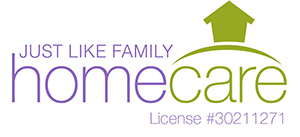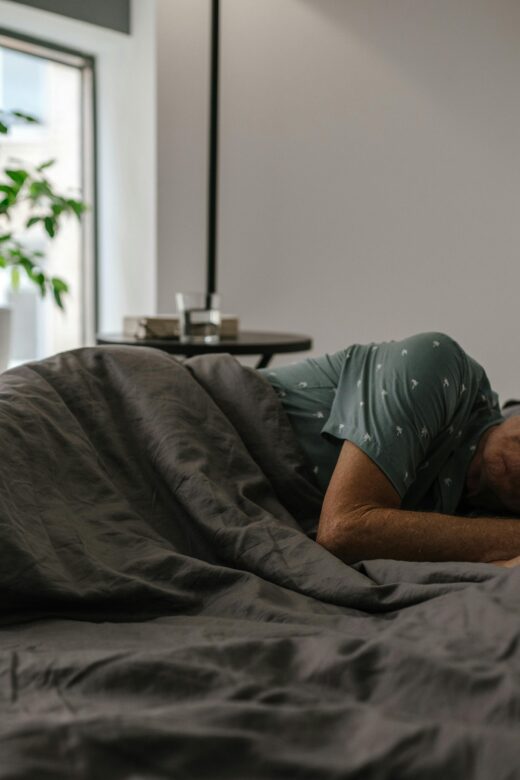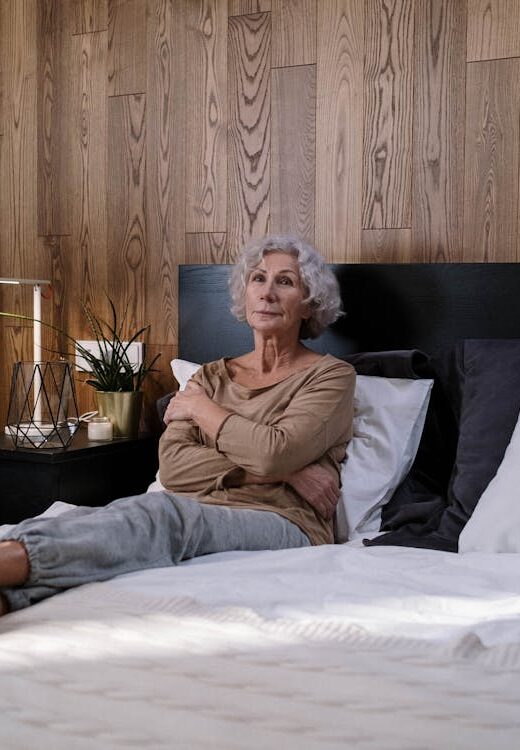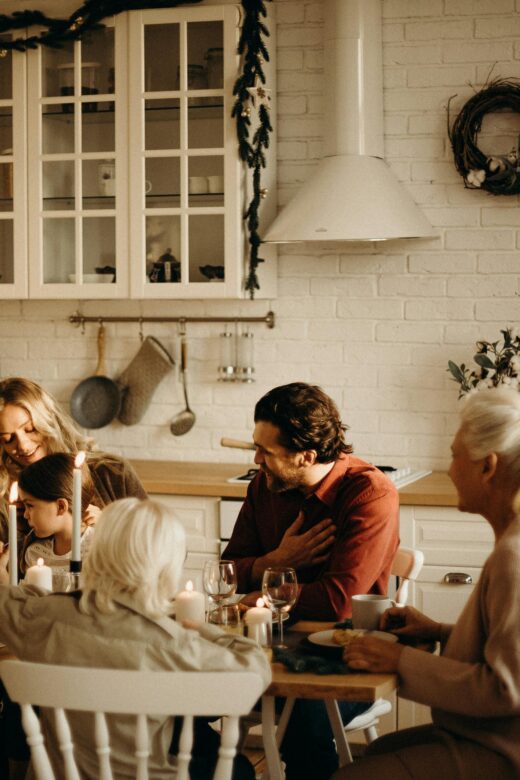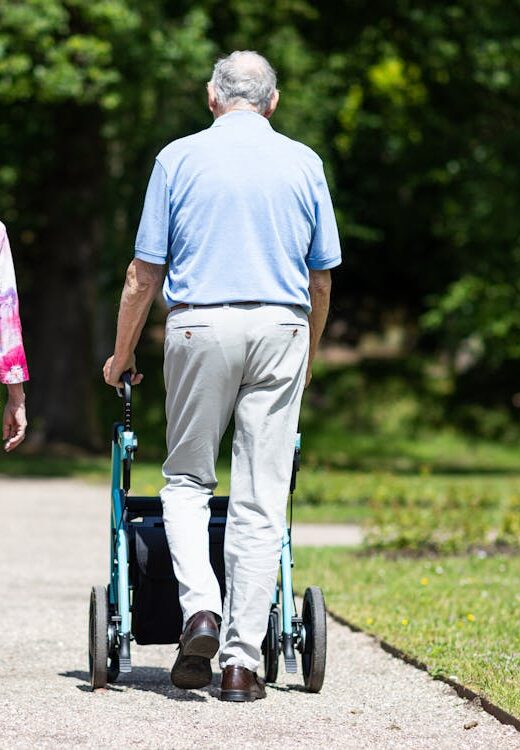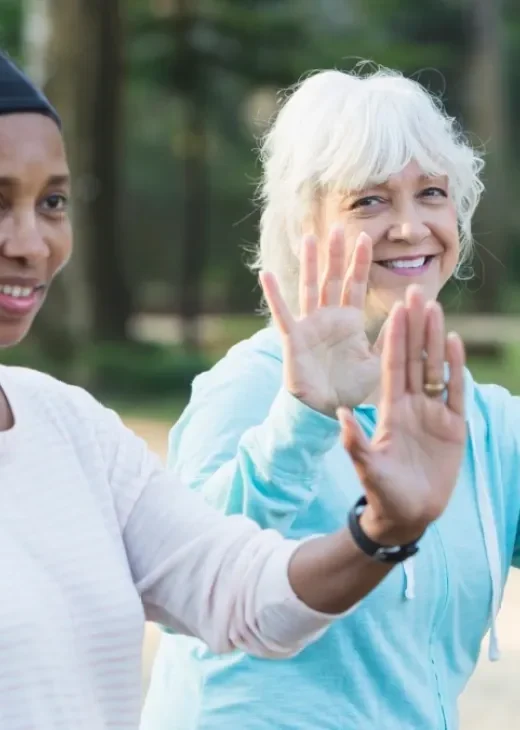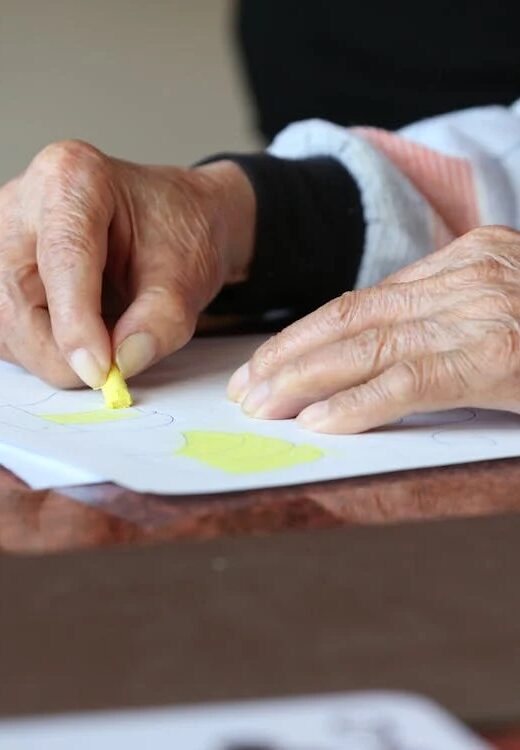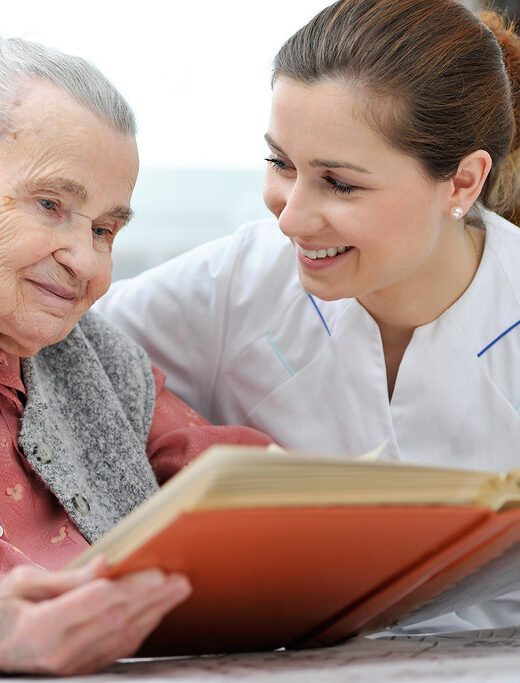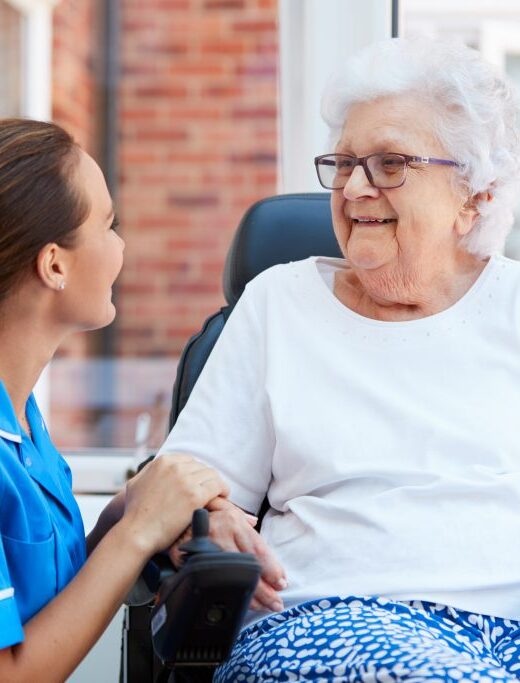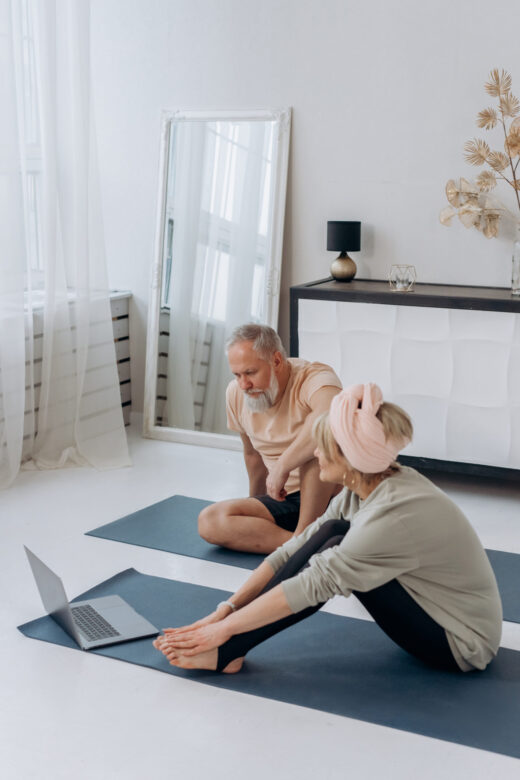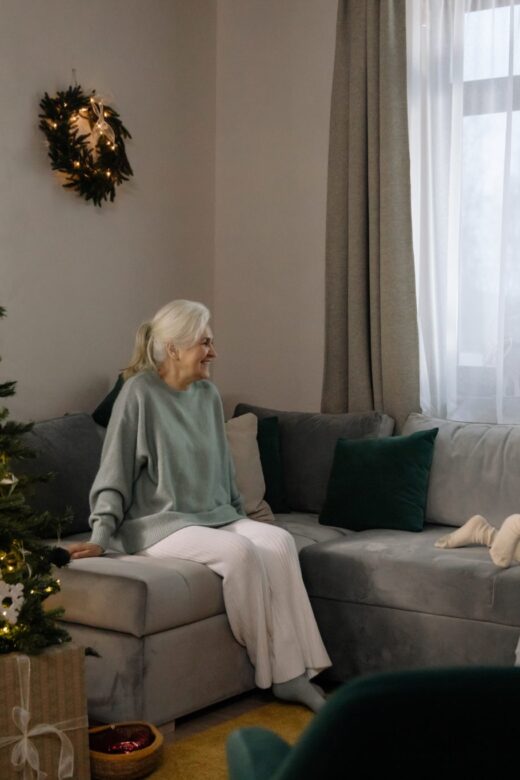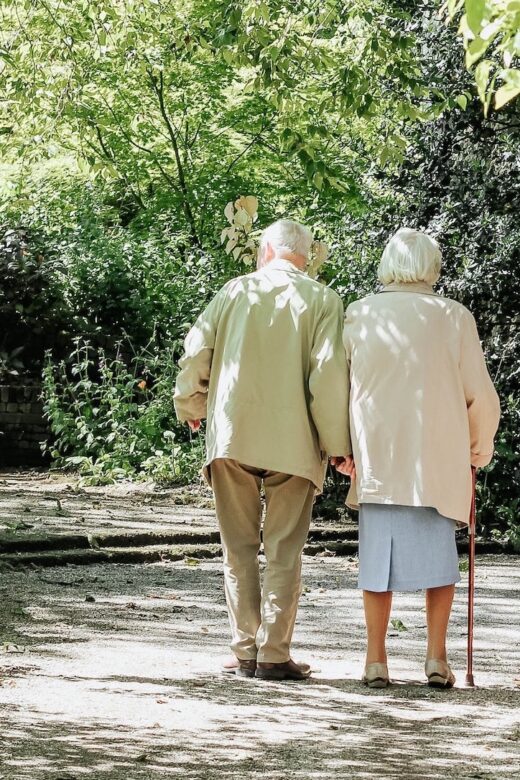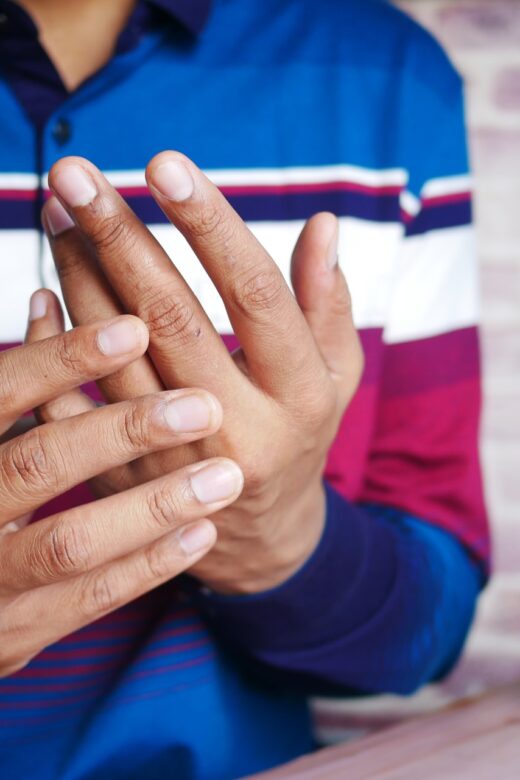Chronic Obstructive Pulmonary Disease, or COPD, is a long-term lung condition that makes it difficult to breathe. The common …
Reducing Stroke Risks
A stroke is a serious medical event that occurs when blood flow to the brain is interrupted either by a blockage or a burst blood …
Coping with Vision Decline as We Age
Vision decline is a natural part of the aging process, and it happens due to changes in the structure and function of the eyes …
Better Sleep for Seniors
Sleep is essential for overall health and well-being, especially for seniors. Restful sleep is crucial for maintaining cognitive …
Understanding Seasonal Affective Disorder (SAD)
As the seasons change and daylight hours dwindle, many seniors experience mood swings and low energy levels. Although Florida …
Continue Reading about Understanding Seasonal Affective Disorder (SAD)
Healthy Holiday Eating Tips for Seniors
The holiday season is a time for joy, family gatherings, and, of course, delicious food. However, for seniors, it can also be a …
Continue Reading about Healthy Holiday Eating Tips for Seniors
Creating Joyful Holiday Moments for Seniors with Alzheimer’s or Dementia
November is Alzheimer's Awareness Month, a time dedicated to raising awareness about Alzheimer's disease, which affects over 6 …
Continue Reading about Creating Joyful Holiday Moments for Seniors with Alzheimer’s or Dementia
Essential Fall Prevention Tips for Seniors
As people age, falls become increasingly common and more of a concern for elders since they can result in injuries and a loss of …
Continue Reading about Essential Fall Prevention Tips for Seniors
Tai Chi for Senior Wellness
Tai Chi is one of the most well-liked physical activities for elders because it helps preserve overall physical and mental health …
Navigating Dementia in the Sunset Years
Dementia is a neurocognitive disorder which effects a large population in the U.S. According the study, over 3.4 million of …
Continue Reading about Navigating Dementia in the Sunset Years
The Synergy Between Hospice Care and Just Like Family Home Care
Hospice care is a specialized form of medical care designed to provide comfort and support to individuals in the final stages of …
Continue Reading about The Synergy Between Hospice Care and Just Like Family Home Care
Golden Years Sun Safety: Seniors and Skin Cancer Awareness
Skin cancer, the abnormal growth of skin cells, most commonly develops on areas exposed to the sun. However, it can also occur on …
Continue Reading about Golden Years Sun Safety: Seniors and Skin Cancer Awareness
Arthritis in Seniors
Arthritis is the swelling and tenderness of one or more joints. It primarily affects seniors and tends to worsen with age. It can …
Heart Disease and How Just Like Family Home Care Can Help
Heart disease has a significant impact on seniors. The risk of having a heart attack, stroke, coronary heart disease, and heart …
Continue Reading about Heart Disease and How Just Like Family Home Care Can Help
Benefits of Spring Cleaning for Seniors
Traditionally, spring cleaning gives us a chance to makeover our houses and get ahead of the busy spring and summer months. …
Continue Reading about Benefits of Spring Cleaning for Seniors
Aging in Place
Aging in place is the idea of growing older while remaining in one’s own home, rather than moving to a senior care facility. This …
Incontinence in Seniors
Incontinence is a common problem among seniors. About 75% of women over age 65 suffer with urine leakage, and 60-70% of people …
Healthy Fall Charcuterie Board
A healthy fall charcuterie board is a great way to enjoy the seasonal flavors and produce, while also catering to the needs and …
September is Healthy Aging Month
Just Like Family Home Care can play a vital role in helping seniors with healthy aging. Some of the ways we can do so …
Benefits of Hiring a Home Caregiver
As people age or become ill, they often require additional assistance with their daily activities. While some may prefer to move …
Five Tips for Seniors When Choosing Online Workout Classes
The first month of the New Year is flying by and many the people are still sorting out their goals and resolutions for 2023. It is …
Continue Reading about Five Tips for Seniors When Choosing Online Workout Classes
How to Keep Your Health in Check This Holiday Season
The holidays are known for taking a toll on our bodies. Between the chilly temperatures, onset of flu season and the overabundance …
Continue Reading about How to Keep Your Health in Check This Holiday Season
National Wellness Month!
August is National Wellness Month! National Wellness Month focuses on self-care and promoting healthy habits, including sleep, …
What is Late Stage and End-of-Life Care
The final stage of life is challenging, even for caregivers with lots of experience. If your loved one is in their final days of …
Continue Reading about What is Late Stage and End-of-Life Care
Chronic Pain Assistance at Home: Helping Seniors Manage Pain
Did you know it's estimated that 20.4% of adults in the United States live with chronic pain? Managing chronic pain on your own …
Continue Reading about Chronic Pain Assistance at Home: Helping Seniors Manage Pain
Boost Immune System Health in Elderly Seniors
As we age, our immune response capability becomes reduced, making us prone to more infections and life-threatening diseases. …
Continue Reading about Boost Immune System Health in Elderly Seniors
Do I Need A Home Health Aides (HHA), Certified Nursing Assistant (CNA), Or Licensed Practical Nurse (LPN) ?
Finding the right level of care for your or a loved one is important as you age. There are a variety of options available, but …
Should Seniors Consider Getting a Pet? Everything to Know
Are you looking for ways to keep your elderly loved ones busy as they transition into their next stage of life? Do you want to …
Continue Reading about Should Seniors Consider Getting a Pet? Everything to Know
Why Are Seniors More Prone to Heat Illnesses?
Did you know that 2020 was Florida's hottest year on record? While warm weather and constant sunshine are why many seniors …
Continue Reading about Why Are Seniors More Prone to Heat Illnesses?
Benefits of Companionship for Seniors
Now that 75 percent of the U.S. senior population have been vaccinated against COVID-19, let's talk about the …
Continue Reading about Benefits of Companionship for Seniors
